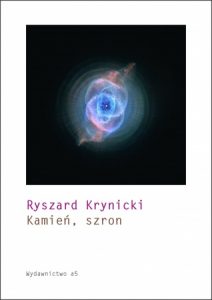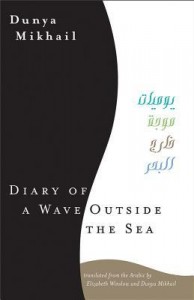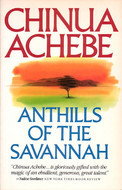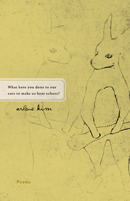 Although it’s been over a decade since I held a coherent conversation in Polish, I am still drawn to the language. Sometimes I watch dark movies filmed during Communism and sometimes I pick up books in Polish at used bookstores, thinking that I will someday read one. A few months ago, I saw Kamień, szron by Ryszard Krynicki at just such a bookstore and the shortness of the poems made me think this would be the Polish book I would finally read. And I did. Kind of.
Although it’s been over a decade since I held a coherent conversation in Polish, I am still drawn to the language. Sometimes I watch dark movies filmed during Communism and sometimes I pick up books in Polish at used bookstores, thinking that I will someday read one. A few months ago, I saw Kamień, szron by Ryszard Krynicki at just such a bookstore and the shortness of the poems made me think this would be the Polish book I would finally read. And I did. Kind of.
Muddling Through
I enjoy reading poetry in languages I only somewhat remember even when the full meaning of the poems is lost on me. But it seemed natural because of National Poetry Month that today would be the day I’d test my Polish skills, so I sat down with the book and two dictionaries and began underlining and looking up words I didn’t understand. I read each poem aloud. I learned the language by ear and although the spelling is phonetic, Polish words contain a lot of consonants. Only by reading some of the words aloud do I realize how many of them I have at least heard. As I gained confidence (and got wrapped up in the book) I stopped looking words up and just enjoyed what I could read and infer.
What is Polish Poetry Like?
I’ve actually read a bit of Polish poetry in translation, including works by Zbigniew Herbert, Czesław Miłosz, Wisława Szymborska, and Adam Zagajewski. What Krynicki has in common with these poets (besides the fact that he owns a press that has published nearly all of them) is that many of his poems are about travel. Perhaps that’s one of the luxuries of living in Europe where the countries are so close together, but even US poets that I’ve read don’t remark nearly as often about visiting a new city. There is a sense of otherness in these poems as though Krynicki is rediscovering himself in relation to each new geographical location.
Like English-language poetry, however, Krynicki’s work refers often to the work of other poets. In particular, he calls out Paul Celan.
I don’t have enough background in Polish literature to remark on the forms Krynicki uses, but I loved the sound of his poetry. Despite what the plethora of consonants might make you think, Polish is actually a soft and musical language. It’s kind of ornate in its own way and because nouns have cases (as in Latin), there is no need for articles and the arrangement of words is more fluid. I can’t remark on whether Krynicki takes special advantage of these aspects of his language, but the poems flowed naturally.
Different Vantage Points
One of the things I enjoyed most about this book was the chance to see the world through the eyes of a different culture without the filter of a translator. In fact, one of my favorite lines in “Fragmenty z roku 1989” (Fragments from 1989), is radically different in the English translation I found online. The line is, “świta okaleczony świat” and my rough translation is “dawning of a crippled world” which has all kinds of fascinating implications when we think of the jubilation in the West when the Berlin Wall fell and the Iron Curtain was finally pulled back. I don’t think Krynicki was lamenting the downfall of Communism, but he was offering a more nuanced view of what this new world meant. The translation I found online, reads instead “Dawn, the color of the Seine, / color of wormwood and gall” which has a very different meaning.
If you’d like to read some of Krynicki’s poetry in English, I particularly recommend “A stone from the new world.”
I loved this exercise of stretching and remembering by challenging myself to read something I didn’t think I could. How do you stretch your language? Are you ever tempted to try out that high school French or Spanish by reading poems in their native languages?
The full text of Kamień, szron isn’t available in English that I know of, but you can purchase Ryszard Krynicki’s selected poems from Bookshop.org. Your purchase helps support indie bookstores and I receive a commission.
 On the tenth anniversary of the 2003 US invasion of Iraq, I listened on NPR as
On the tenth anniversary of the 2003 US invasion of Iraq, I listened on NPR as  When novelist Chinua Achebe died late last week, I remembered that I had several of his books sitting at home and had still not read any of them. I thought for a few minutes about why I hadn’t. Faithful readers of this blog will know that I often read geographically. Last spring I have to have gone through 10 or more Balkan Books in anticipation of a trip to Croatia. And the blog wasn’t extant when I went through my summer of Africana a few years back. But even that summer was mostly filled with non-Africans writing about Africa including Beryl Markham, Isak Dineson, Alexander McCall Smith and V.S. Naipaul.
When novelist Chinua Achebe died late last week, I remembered that I had several of his books sitting at home and had still not read any of them. I thought for a few minutes about why I hadn’t. Faithful readers of this blog will know that I often read geographically. Last spring I have to have gone through 10 or more Balkan Books in anticipation of a trip to Croatia. And the blog wasn’t extant when I went through my summer of Africana a few years back. But even that summer was mostly filled with non-Africans writing about Africa including Beryl Markham, Isak Dineson, Alexander McCall Smith and V.S. Naipaul. Poet Arlene Kim rocked my literary heart at Richard Hugo House’s Lit Series earlier this year with an erasure poem displayed entirely in slides. This haunting response to the abuse of girls changed my conception of poetry. I bought her book, What have you done to our ears to make us hear echoes?, immediately and have carried it with me every day since.
Poet Arlene Kim rocked my literary heart at Richard Hugo House’s Lit Series earlier this year with an erasure poem displayed entirely in slides. This haunting response to the abuse of girls changed my conception of poetry. I bought her book, What have you done to our ears to make us hear echoes?, immediately and have carried it with me every day since.